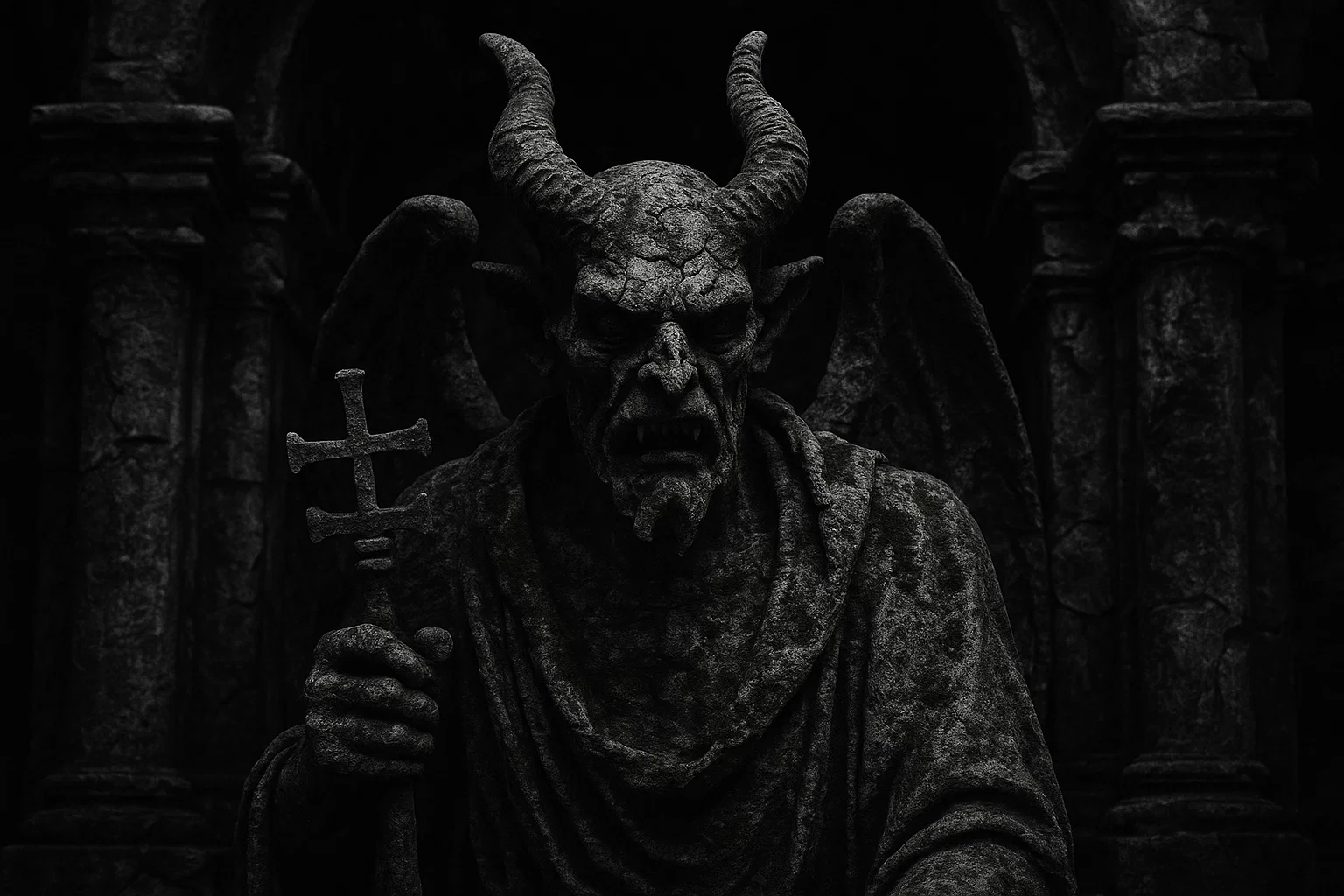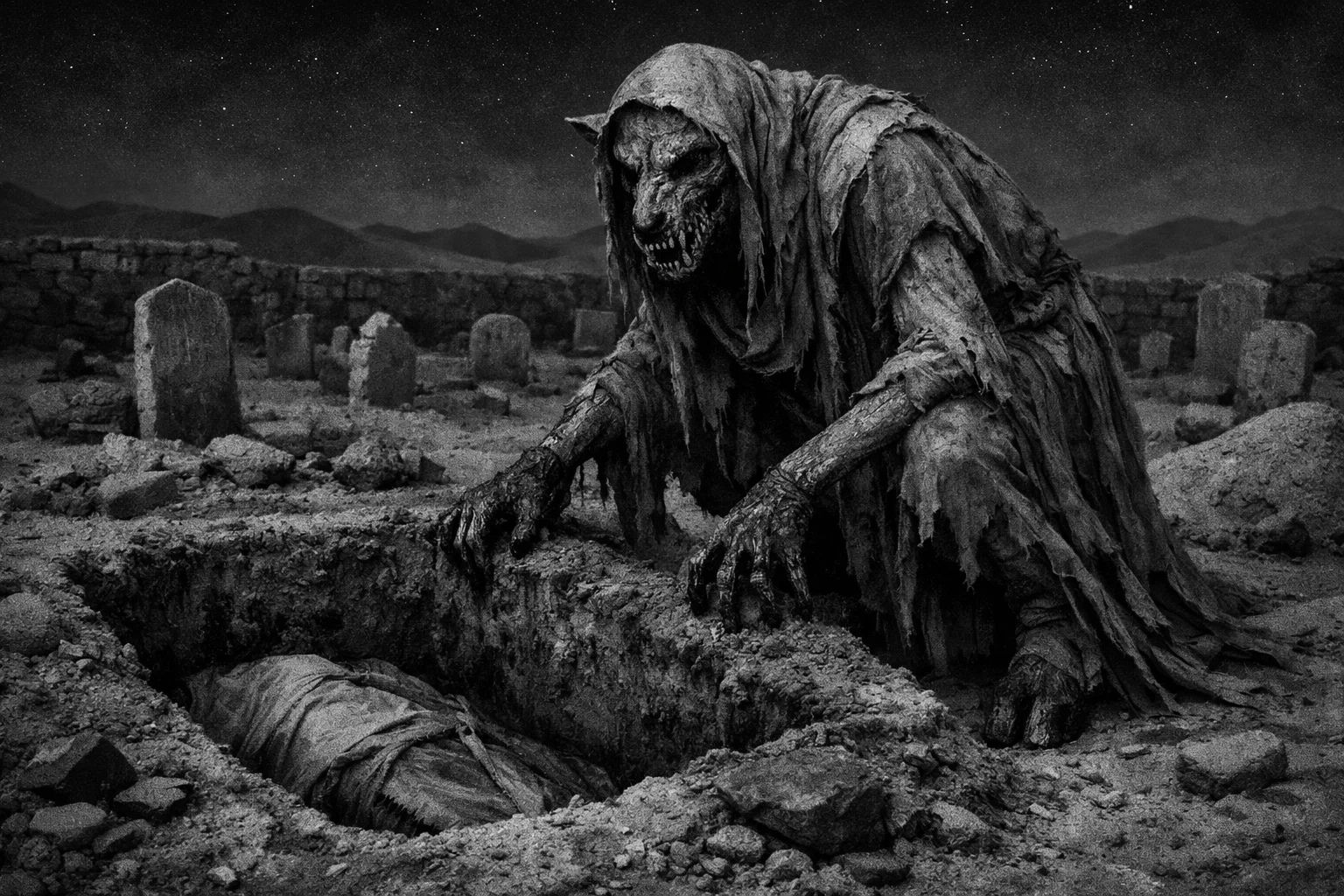In the dark annals of demonology, Ronové lurks as a formidable entity, a Marquis and Great Earl of Hell whose command over rhetoric, languages, and subtle manipulation sows discord and corruption among mortals. This demon, with his monstrous form and insidious gifts, embodies the perilous allure of forbidden knowledge, drawing the unwary into eternal damnation through promises of intellectual supremacy and social dominance.
What secrets does Ronové whisper to those who dare invoke him? How does his harvest of souls fuel the infernal machine? And why does his pacifistic facade mask a deeper malevolence in the hierarchy of Hell?
Exploring the lore of Ronové reveals a figure whose powers tempt scholars, orators, and schemers alike, leading them astray with enhancements that ultimately serve demonic ends. This comprehensive guide delves into the Ronové powers, hierarchy, appearance, and more, uncovering the layers of deceit woven into his existence without glorifying his malevolent influence.
Summary
Key Information
| Attribute | Details |
|---|---|
| Name | Ronové, Ronove, Roneve, Ronwe, Ronobe, Ronoweh, Ron-Ven |
| Title | Marquis, Great Earl |
| Gender | Male |
| Role | Corrupter through rhetoric, languages, and art; deceiver with false loyalties; harvester of souls |
| Hierarchy | Marquis and Great Earl of Hell, 27th spirit in the Ars Goetia, commanding 19–20 legions of demons |
| Servitors | Unnamed lesser spirits; provides deceptive familiars to summoners |
| Superior Demon | Likely under higher entities such as Astaroth, Beelzebub, or Lucifer |
| Powers | Corrupts with teachings of rhetoric, languages, and art; ensnares with false favors and servants; harvests souls; wields pyrokinesis and telekinesis for destruction |
| Appearance | Monstrous figure holding a staff; brilliant shoulder-length golden hair, tribal facial markings, small vestigial wings, aura of intimidating wisdom |
| Etymology | Possibly from Hebrew “ron” (song or joy), Latin “renovare” (to renew), or Semitic roots denoting utterance; variants reflect medieval scribal adaptations |
| Associated Figures | Linked to Mercury/Hermes for deceptive communication; psychopomp figures like Charon for soul harvesting |
| Weaknesses | Susceptible to holy invocations, exorcisms, and angelic countermeasures like Archangel Michael |
| Opposing Angel/Saint | Archangel Michael; Saint Benedict as protector against infernal spirits |
| Equipment/Tools | Staff symbolizing corrupt authority; sigil for invocation |
| Pantheon | Christian demonology; Goetic tradition; echoes in global psychopomp myths |
Etymology
The name Ronové shrouds itself in linguistic obscurity, a fitting veil for a demon whose essence revolves around manipulation through words. Scholars trace potential roots to Hebrew, where “ron” signifies “song” or “joy,” implying a twisted perversion of eloquent expression into tools of deceit and corruption. This connection suggests Ronové‘s name evokes the seductive melody of forbidden knowledge, luring mortals into infernal pacts under the guise of harmonious wisdom.
Alternative theories link Ronové to Latin “renovare,” meaning “to renew” or “restore,” which could symbolize his deceptive renewal of a summoner’s intellect or social standing, only to lead to spiritual decay.
In Semitic or Akkadian contexts, similar phonetic structures denote divine utterances or prophetic speech, hinting at ancient origins where Ronové might have been a corrupted echo of oracular entities.
The name’s variants—Ronove, Roneve, Ronwe, Ronobe, Ronoweh—arise from medieval grimoires‘ transcriptional errors, adapting to Latin, French, and English influences, with some conjurers noting a preferred pronunciation as “Ron-Ven” to align with his elusive nature.
Further etymological analysis reveals possible ties to Indo-European roots for “voice” or “renown,” underscoring Ronové‘s role in granting false fame through persuasive arts. In occult linguistics, the name’s Gematria value (around 268 or 272) aligns with numerological symbols of hidden wisdom and infernal authority, reinforcing his position as a deceiver who twists language for demonic ends.
These interpretations, drawn from comparative demonology, highlight how Ronové‘s nomenclature evolves across cultures, always embodying the peril of unchecked verbal power.
You May Also Like: Phenex: The Fiery Demon Marquis of Hell
What Does the Demon Ronové Look Like?
Ronové manifests as a monstrous entity wielding a staff that radiates corrupt authority, his form designed to intimidate and subjugate.
Descriptions emphasize his shoulder-length golden hair gleaming with an unholy luster, tribal markings etched across his face like ancient runes of domination, and small, vestigial wings hinting at a fallen celestial origin.
This appearance, neither fully grotesque nor approachable, instills a false sense of awe, drawing victims closer to his web of deception.
Historical and Mythological Background
Ronové‘s origins trace back to medieval European demonology, emerging prominently in the 17th-century Ars Goetia as part of the Lesser Key of Solomon, a grimoire compiling earlier occult knowledge.
Rooted in Judeo-Christian traditions, he represents a perversion of divine wisdom, likely adapted from earlier Semitic or Babylonian spirits associated with eloquence and the underworld. His role as a soul harvester echoes global psychopomp figures, such as the Greek Charon ferrying souls across the Styx or Egyptian Anubis guiding the dead, but twisted into an infernal collector serving Hell’s agenda.
Connections to ancient deities abound in comparative mythology. Ronové‘s mastery of languages and rhetoric parallels Hermes in Greek lore or Mercury in Roman, gods of communication and trickery, suggesting a demonic corruption of these archetypes. In Egyptian mythology, ties to Thoth, the ibis-headed god of writing and knowledge, imply Ronové as a shadowed counterpart, using intellect for chaos rather than order.
Norse echoes appear in Loki’s deceptive speech, while Hindu parallels with Vak, the goddess of speech, highlight how Ronové inverts sacred utterance into tools of temptation. African and Native American trickster spirits, like Anansi or Coyote, share his manipulative eloquence, indicating a universal demonic archetype across cultures.
The Soul Harvester
In demonic lore, Ronové descends as a taker of old souls, targeting the frail and dying to claim their essences for Hell. This legend, detailed in grimoires, portrays him arriving at deathbeds of the elderly or infirm, using his staff to sever lingering ties to the mortal world.
Unlike benevolent psychopomps, Ronové‘s harvest is predatory, exploiting final moments of vulnerability to whisper temptations, ensuring souls are damned through last-minute pacts. Historical accounts from medieval texts describe villages plagued by unexplained deaths, attributed to Ronové‘s nocturnal visits, where animals and humans alike succumb, their spirits funneled into infernal legions.
This role amplifies his malevolence, as harvested souls bolster his 20 legions, perpetuating cycles of corruption. In expanded narratives, Ronové selects victims based on unrepented sins, accelerating decay with subtle influences like induced despair or false visions of afterlife glory, only to reveal torment upon crossing.
Teacher to Witches
Ronové poses as a teacher to witches, imparting corrupted knowledge of rhetoric, poetry, and languages to enhance dark arts.
In early modern Europe, occultists summoned him to gain linguistic prowess for spellcasting or deceiving authorities during witch hunts. His lessons, however, embed infernal hooks, twisting students’ minds toward hubris and betrayal. Expanded tales recount covens invoking Ronové for multilingual incantations, only to find their words summoning unintended horrors, leading to self-destruction.
Factual expansions from occult traditions detail his familiars—shadowy entities—as spies, reporting back to Hell and amplifying corruption. Witches gaining “favor” discover it comes at the cost of allies’ souls, fostering isolation and damnation.
You May Also Like: Proserpina: Queen of the Underworld’s Dark Secrets
The Persuader
As a granter of favor with friends and foes, Ronové weaves social webs of deceit, aiding in manipulations that erode moral foundations. Legends depict him assisting schemers in courts or battles, where his rhetoric turns enemies into unwitting pawns. In detailed stories, a medieval diplomat summons Ronové for eloquent negotiations, securing treaties that secretly sow discord, leading to wars and soul harvests.
His persuasion corrupts gradually, encouraging lies and flattery that undermine trust, aligning with his pacifistic avoidance of direct conflict—preferring subtle erosion over overt violence.
The Pacifist Deceiver
Unique among demons, Ronové‘s pacifistic demeanor masks deeper treachery, as he abstains from Hell’s civil wars, focusing on intellectual corruption.
This legend suggests origins in the initial rebellion, where he opted for manipulation over combat, earning disdain from warlike demons but favor from superiors for efficient soul gathering.
Historical Mentions
| Text/Grimoire | Year | Description | Excerpt |
|---|---|---|---|
| Pseudomonarchia Daemonum | 1577 | Portrays Ronove as a marquis and earl, monstrous in form, corrupting through rhetoric, languages, and false favors. | “Ronove a marquesse and an earle, he is resembled to a monster, he bringeth singular understanding in rhetorike, faithfull servants, knowledge of toongs, favour of freends and foes; and nineteene legions obeie him.” |
| Lemegeton Clavicula Salomonis (Ars Goetia) | ~17th Century | Lists Ronove as the 27th spirit, a monster teaching deceptive arts and granting misleading servants. | “The Twenty-seventh Spirit is Ronove. He appeareth in the Form of a Monster. He teacheth the Art of Rhetoric very well and giveth Good Servants, Knowledge of Tongues, and Favours with Friends or Foes. He is a Marquis and Great Earl; and there be under his command 19 Legions of Spirits.” |
| Dictionnaire Infernal | 1818 | Depicts Ronwe as a monstrous marquis and earl, corrupting languages and commanding cohorts for soul harvesting. | “Ronwe, Marquis and Earl of Hell, who appears in the form of a monster; he gives his followers the knowledge of languages and the goodwill of everyone. Nineteen infernal cohorts are under his command.” |
Ronové’s Powers and Abilities
Ronové‘s arsenal focuses on intellectual corruption, distinguishing him from brute-force demons. His core abilities—teaching rhetoric, languages, and art—tempt mortals with enhanced communication, leading to manipulative behaviors that isolate and damn. He grants false favors with friends and foes, fostering dependencies that erode ethics, and provides deceptive familiars that spy and corrupt from within.
Expanded powers include pyrokinesis, channeling infernal fire to incinerate obstacles or symbolize burning truths, and telekinesis, moving objects to demonstrate power and instill fear. As a soul harvester, he claims dying essences, using them to amplify his legions. Newer interpretations add authority through silence, commanding respect without words, and recovery of voice for the suppressed, twisted to amplify vengeful speech.
In pop culture depictions, though sparse, Ronové appears in occult-themed media with amplified abilities like mind control via eloquence or spectral familiars in games, emphasizing his role in psychological horror.
Ronové corrupts by inflating egos with intellectual gifts, encouraging prideful misuse—e.g., a scholar using rhetoric for plagiarism or a leader for tyranny. His familiars deepen addiction to power, leading to soul forfeiture.
You May Also Like: Pruflas: Prince of Chaos in Hell’s Hierarchy
Powers and Abilities Breakdown
| Power/Ability | Description | Source | How It Tempts/Corrupts Humans | Countermeasure |
|---|---|---|---|---|
| Teaching Rhetoric | Instills deceptive persuasive skills for manipulation and control. | Ars Goetia, Pseudomonarchia | Fuels lies and deceit, eroding trust and morals. | Invocation of Archangel Michael; ethical discourse |
| Knowledge of Languages | Grants fluency twisted for spreading misinformation and curses. | Dictionnaire Infernal | Promotes cultural exploitation and hidden agendas. | Pure-intent learning; Saint Benedict’s protection |
| Providing Deceptive Servants | Supplies familiars that betray and corrupt summoners. | Ars Goetia | Creates infernal dependencies, leading to isolation. | Exorcism; holy relics |
| False Favor with Others | Secures temporary alliances that collapse into betrayal. | Pseudomonarchia Daemonum | Encourages backstabbing and unethical gains. | Confession and repentance |
| Pyrokinesis | Manipulates fire for destruction and intimidation. | Modern occult lore | Tempts arson or symbolic burning of virtues. | Holy water rituals; angelic seals |
| Telekinesis | Moves objects to showcase power and cause chaos. | Contemporary demonology | Instigates fear and reliance on supernatural force. | Grounding meditations; fasting |
| Soul Harvesting | Claims souls of the dying for infernal purposes. | Dictionnaire Infernal | Exploits vulnerability, hastening damnation. | Rosary; deathbed prayers |
| Authority Through Silence | Commands respect without speech, fostering intimidation. | Advanced grimoires | Promotes passive-aggressive control and suppression. | Vocal prayers; community support |
| Hidden Knowledge Revelation | Unveils secrets that lead to moral downfall. | Occult testimonies | Lures with forbidden insights, causing obsession. | Scriptural study; humility |
How to Counter Ronové’s Powers
Resisting Ronové demands spiritual vigilance and countermeasures rooted in faith. His rhetorical temptations falter against humility and truthful speech, where invoking Archangel Michael disrupts manipulative influences. For language-based corruption, grounding in sacred texts neutralizes twists.
Against familiars, exorcism rituals with holy water banish entities, while Saint Benedict’s medal wards off favors turning sour. Soul harvesting counters with deathbed confessions and Rosaries, severing infernal claims. Pyrokinesis and telekinesis yield to angelic seals and fasting, weakening demonic energy. Overall, closing invocations with banishing rites prevents lingering corruption.
Ronové’s Role in the Hierarchy of Hell
In Hell’s rigid structure, Ronové ranks as a Marquis and Great Earl, the 27th spirit in the Ars Goetia, commanding 19–20 legions of lesser demons focused on intellectual subversion. Marquises, below Dukes and above Earls in some classifications, oversee domains of deception and knowledge, with Ronové ruling shadowy realms where souls are harvested and rhetoric forged into weapons.
His armies, comprising spectral harvesters and linguistic tempters, patrol infernal borders, claiming wayward spirits. Notable subordinates include Kharvel (persuasive oaths), Dravorn (hidden agreements), Ulmareth (spoken curses), Zovrekh (intellectual traps), Malthren (familiar bonds), and Veyndar (silent commands), extending his reach.
Superiors like Astaroth (secrets) or Beelzebub (lords of flies) oversee him, demanding tributes of souls. Allies include Paimon (esoteric corruption), Marbas (deceptive healing), and Furcas (memory manipulation), forming cabals for joint temptations. Adversaries encompass warlike Marquises like Andras or Marchosias, clashing with his pacifism, leading to infernal rivalries.
This position allows Ronové to avoid direct conflicts, focusing on subtle erosions that sustain Hell’s expansion.
You May Also Like: Who Was Qingu in Babylonian Mythology?
Astrological Associations and Symbolism
Ronové aligns with Mercury, planet of deceitful communication and intellect, amplifying his rhetorical corruption. His element Air symbolizes fleeting whispers of temptation, with secondary Fire for pyrokinesis. Zodiac ties to Gemini reflect duality in persuasion, while Sagittarius 20–30 degrees evokes expansive knowledge traps.
Colors like yellow (intellect deceit) and violet (spiritual manipulation) dominate, metals tin (Jupiter influence) and mercury (fluidity), crystals citrine (false clarity) and amethyst (twisted insight). Numbers 268/272 in Gematria signify hidden perils, days August 2–7 and December 13–21 for peak influence.
Tarot links to 6 of Wands (deceptive victory) and 10 of Wands (knowledge burden). Symbolism extends to feathers (airy deceit), scrolls (corrupt wisdom), and mirrors (reflective manipulation).
| Attribute | Details |
|---|---|
| Planet | Mercury, Mars, Jupiter, Moon |
| Element | Air (primary), Fire (secondary) |
| Zodiac | Gemini, Sagittarius 20–30 degrees |
| Tarot | 6 of Wands, 10 of Wands |
| Colors | Yellow, Violet, Purple, Light Blue |
| Metals | Tin, Mercury (quicksilver), Silver, Iron |
| Stones/Crystals | Citrine, Amethyst, Agate, Lapis Lazuli, Fluorite |
| Number | 268, 272 (Gematria) |
| Day | Wednesday; August 2–7, December 13–21 |
| Herbs/Plants | Lavender, Dill, Cinnamon, Jasmine |
Ronové’s Sigil
The sigil of Ronové, a intricate geometric emblem from the Ars Goetia, serves as a portal for his corrupt influence, drawn with lines evoking twisted tongues and hidden paths. Used in invocations, it focuses demonic energy, often on parchment or tin for resonance.
Associated Symbols and Offerings
| Symbol/Item | Association/Meaning | Use in Rituals |
|---|---|---|
| Staff | Corrupt authority and control over souls | Altar centerpiece for focus |
| Cinnamon | Fiery stimulation of deceitful speech | Incense for invocation |
| Jasmine | Illusory spiritual clarity | Offering for linguistic enhancement |
| Citrine | False mental clarity and success | Crystal for amplifying temptations |
| Amethyst | Twisted wisdom and insight | Meditation aid for hidden knowledge |
| Yellow Candle | Intellectual deceit | Lit for airy corruption |
| Purple Candle | Spiritual manipulation | Enhances silent authority |
| Feather | Airy whispers of temptation | Symbolic for communication rituals |
| Scroll | Corrupt written knowledge | Used in language pacts |
| Mirror | Reflective self-deception | Scrying for favors and influences |
You May Also Like: Rakshasa: The Demon That Shape-Shifts Into Your Worst Fear
Comparison with Other Demons
| Demon | Rank | Powers | Key Difference from Ronové |
|---|---|---|---|
| Agares | Duke | Teaches languages, causes earthquakes, returns runaways | Physical destruction vs. Ronové’s intellectual manipulation |
| Amon | Marquis | Divination, reconciles friends, procures love | Prophetic focus vs. Ronové’s rhetorical corruption |
| Barbatos | Duke | Understands animals, reveals treasures, conciliates friends | Nature and wealth emphasis vs. Ronové’s language deceit |
| Buer | President | Heals diseases, teaches philosophy and logic | Healing and broad sciences vs. Ronové’s persuasive arts |
| Eligos | Duke | Foresees wars, gains favor of lords, discovers hidden things | Military prophecy vs. Ronové’s social favors |
| Naberius | Marquis | Teaches arts and sciences, restores lost honors | Restoration of status vs. Ronové’s soul harvesting |
| Paimon | King | Teaches sciences, arts, and secrets; binds subjects | Broad esoteric binding vs. Ronové’s familiar deception |
| Valefor | Duke | Tempts to steal, provides familiars | Theft promotion vs. Ronové’s intellectual temptations |
| Forneus | Great Marquis | Teaches rhetoric and languages, gives good name | Sea monster form and name-giving vs. Ronové’s monstrous staff-wielding |
| Furcas | Knight | Teaches philosophy, rhetoric, logic, astronomy | Knightly warfare aid vs. Ronové’s pacifistic subtlety |
| Gamigin | Great Marquis | Teaches liberal sciences, accounts of dead souls | Soul accounts vs. Ronové’s active harvesting |
| Kimaris | Marquis | Teaches grammar, logic, rhetoric; makes warriors | Warrior transformation vs. Ronové’s eloquent control |
Conclusion
Ronové, the insidious Marquis and Great Earl of Hell, exemplifies the dangers of demonic intellect, his powers of rhetoric and soul harvesting leading countless to ruin. Through his deceptive teachings and false favors, he perpetuates eternal corruption, a stark reminder of infernal treachery.
Yet, understanding Ronové demon equips one against his wiles, highlighting the triumph of faith over temptation. His lore, rich with mythological echoes, warns of the shadows lurking in pursuit of knowledge.







